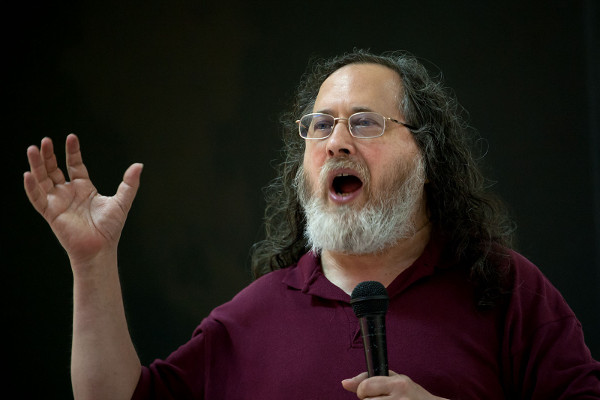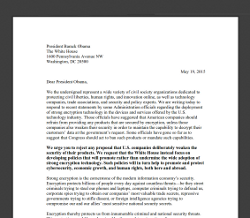Introducing Stephen Mahood, system administrator
mercredi 3 juin 2015 à 19:05This introduction has taken me time because we have been busy—despite the record snowfall in Boston this winter, there have been a few 'fires' to put out. Once the fires were extinguished we had more snow than I could ever imagine, followed quickly by LibrePlanet, so perhaps this should be taken as my six-month introduction.
Why would people in the Latin American free software community know me? Well, before moving back to Boston, I spent nearly three years south of the U.S., living in San Marcos, Guatemala and Distrito Federal (aka Mexico City), Mexico. In that time, I traveled to Brazil for the World Social Forum Free Palestine as a free software tech activist working to maintain the conference site (Drupal 7) and registration (CiviCRM), and to participate in a collective session on tech security for activists. However, tech has not always been my path. I became an activist before deeply delving into the free software movement.
My work began with political organizing for the Howard Dean campaign in the U.S. in 2003. During that time, I learned and organized using the labor union organizing model of César Chávez of the United Farm Workers. Why might that be of interest to the free software movement? The database system we used to track, update, and engage voters is mirrored in CiviCRM. The methods and models of our organizing focused on sharing stories and getting to know our supporters more closely. We kept detailed notes from our one-on-one meetings with supporters and input that information into our database with ease, but more importantly, we were able to track friends, family, and neighbors who expressed support. We could pinpoint the meetings they attended; all of this was easily put into the database in a form that, if another organizer picked up our work, they could catch up pretty quickly and continue without missing a beat. Impressed? I know I was, to the point that I felt the desire and need to learn more about this organizing model, with the hopes the tech would not be too far behind.
Soon after the election was over and George W. Bush was reelected, I found my way into a graduate program at the University of Massachusetts Amherst. The graduate program in Labor Relations and Research (we just called it Labor Studies) altered my life and understanding of the world, including free software. Though I had used GNU/Linux before, it was in graduate school that I began to see the connection between free software movements and labor/social movements. I saw that we cannot just sit on the sidelines waiting for people to individually choose to use and build free software, we need to organize and engage people to understand why free software creates a better future for us all. The first step came with my fellow union members (graduate students in the UMass system are organized in the United Auto Workers union) where we began to replace the Windows systems in our office with Ubuntu (which was only a step away from proprietary, as I later learned how Ubuntu is not so free as in freedom, despite being free as in beer). Though it was a good step with our local, in other labor union interactions the idea of GNU/Linux was foreign, as the tide of MacBooks swept in (I was guilty of it too, but that did not last long).
In labor circles discussing technology is a challenge. The labor movement itself never adapted well to technology, usually fighting it off instead of learning how it could improve their bargaining position and offer their own technology ideas before the 'boss' enforced them. Discussions about office computers were equally challenging, as computers are seen as just a tool. Seeing this, I began actively conversing with free software folks on identi.ca (later StatusNet and now GNU social), where I met a comrade named Walton (aka @leischa), who wrote his masters dissertation on adapting the free software development method (making code available for others to look at and contribute to) to labor movements, which historically has been rather closed and don't share experiences with other unions and groups. So, we both share the viewpoint that labor unions need to work together not just in solidarity, but in reality. There are strengths in some unions and weaknesses in others, and we both advocate for unions to accept those differences and move forward, adapting to the system we reside in -- that is when we decided to create a podcast to discuss this issue.
With our shared vision, me and Walton created the Cyberunions podcast. We began before—but in the same year as—the Occupy movement. We discussed in great detail software that we knew would be beneficial to the labor movement, as well as elements in the labor movement that free software communities could adopt. Walton and I had and continue to have visions of labor unions funding free software, but we also felt it was a struggle to convince a union to use free software, let alone support its development. The podcast has been around for a while now, though we have been bad about keeping it up to date as of late—but there are plans to bring it back.
In the four years that the Cyberunions podcast has been around, I have had the chance to meet and learn from many amazing folks, mostly from the May First People Link community, but also with folks from StatusNet/GNU social—and that continues to this day. If it were not for chance meetings and connections, I would never be where I am now, working for an organization at the foundation and forefront of free software. It was activism and organizing that got me where I am, and I see no reason to stop now. I will continue to organize and work with unions to adopt free software even our own (FSF staff are also in the UAW -- more like United Aferro Workers). If you see me around in IRC (marxistvegan on freenode or mv on oftc and indymedia) or on GNU social, I look forward to engaging with the community and plan to keep organizing while maintaining our servers through rain, sleet, hail, and snow. I only draw the line when the temperature are in the 90s (30s in C). I hate the heat.
in solidarity && happy hacking


















